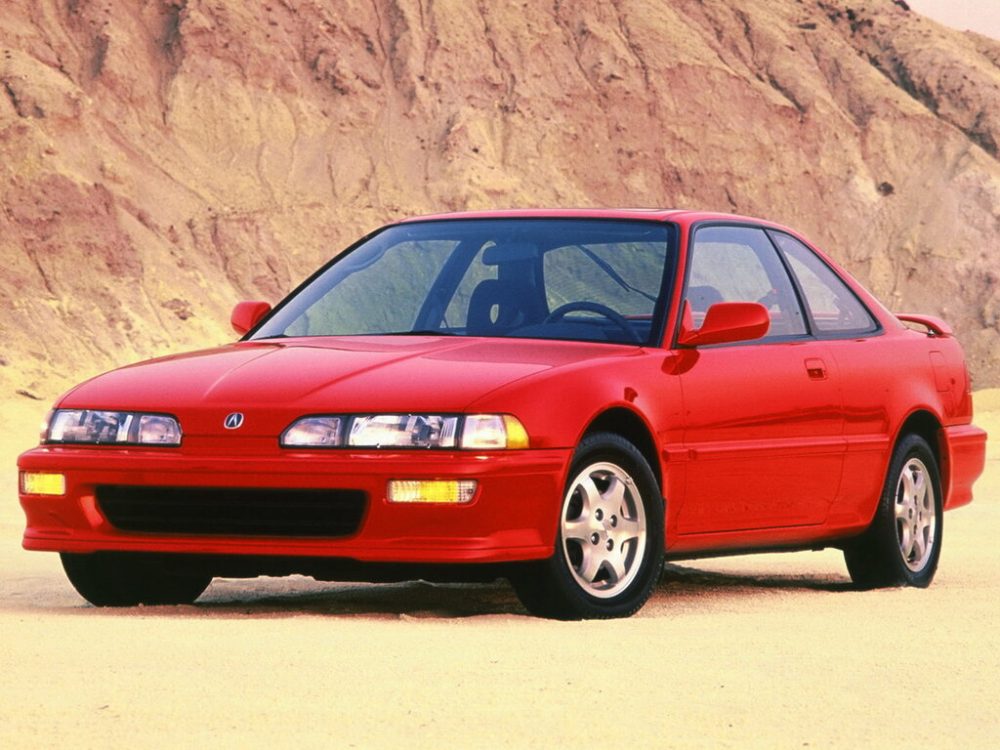The second-generation Acura Integra marked a pivotal moment in automotive history when it debuted in 1989. This compact powerhouse redefined expectations for entry-level luxury sports cars, offering an irresistible blend of performance and refinement that captivated drivers worldwide.
Racing enthusiasts and daily commuters alike found their perfect match in this three-door hatchback. Its sleek profile and driver-focused design established new benchmarks for accessible performance vehicles, while its practical features made it an excellent daily driver.
Engineering That Stands the Test of Time
The heart of the second-generation Integra beats with a robust 1.8-liter engine, producing up to 140 horsepower. This B18A1 powerplant earned a reputation for its bulletproof reliability and impressive performance potential. Engineers focused on creating a responsive yet efficient engine that delivered engaging performance without sacrificing daily usability.
The front-wheel-drive platform, combined with MacPherson strut front suspension and rear torsion beam setup, created a nimble handling character that defined the Integra’s driving experience. This chassis configuration proved ideal for both spirited weekend drives and comfortable daily commuting.
“I’ve owned my ’91 Integra GS for over 15 years now. The handling is still crisp, and the engine runs like clockwork. It’s incredible how well these cars hold up with proper maintenance.” – Mike Thompson, Integra enthusiast
The transmission options showcased Honda’s commitment to driver preference. The 5-speed manual gearbox offered precise shifts and direct engagement, while the automatic transmission provided smooth operation for urban driving. Both options complemented the engine’s character perfectly.
Thoughtful Design Meets Practical Innovation
The Integra’s exterior design represents a masterclass in aerodynamic efficiency and visual appeal. Its wedge-shaped profile and distinctive front end created an instantly recognizable presence on the road. The following elements contributed to its enduring design:
- pop-up headlights that defined the era’s aesthetic trends;
- smooth body lines that minimize wind resistance;
- well-proportioned greenhouse offering excellent visibility;
- distinctive rear hatch design maximizing cargo space;
- integrated rear spoiler enhancing both style and function.
These design choices weren’t just about looks – they served practical purposes while creating an iconic silhouette.
“When I first saw the ’92 Integra at a local meet, I was struck by how well the design has aged. It’s still fresh and purposeful, even by today’s standards.” – Sarah Chen, Automotive Designer
The interior layout prioritized driver engagement without sacrificing comfort. The cockpit-style dashboard wrapped around the driver, placing all controls within easy reach. High-quality materials and attention to detail elevated the cabin experience above typical compact cars of the era.
A Cultural Icon That Shaped Car Culture
The Integra’s influence extended far beyond its sales numbers. It became a cornerstone of the growing import tuning scene, particularly in North America. Its robust engineering provided an excellent platform for modifications, while its accessible price point made it attainable for enthusiasts.
Track days and autocross events often featured modified Integras showcasing their remarkable handling capabilities. The following factors contributed to its popularity in motorsports:
- highly tunable B-series engine;
- balanced chassis dynamics;
- responsive steering feedback;
- strong aftermarket support;
- competitive weight distribution.
The performance potential attracted a dedicated community of enthusiasts who continue to celebrate and preserve these vehicles today.
More Than Just Transportation
Few cars from the early 1990s maintain such a devoted following. The second-generation Integra transcended its role as mere transportation, becoming a symbol of attainable performance and intelligent engineering. Its influence continues to inspire both collectors and everyday drivers who appreciate its unique combination of sportiness and practicality.
Pros and Cons
| Advantages | Disadvantages |
|---|---|
| Exceptional handling dynamics with responsive steering | Limited rear passenger space due to three-door configuration |
| Reliable and durable B18A1 engine with great tuning potential | Basic safety features by modern standards |
| High-quality interior materials that withstand regular use | Potential rust issues in certain areas if not properly maintained |
| Excellent fuel efficiency for a performance-oriented vehicle | Becoming increasingly rare in stock condition |
| Strong aftermarket support and enthusiast community | Parts availability may become challenging for certain components |
| Timeless design that continues to attract attention | Security concerns due to popularity with thieves |
| Practical hatchback configuration for cargo versatility | Some interior plastics prone to wear and sun damage |
The second-generation Acura Integra remains a benchmark for accessible performance vehicles. Its combination of driver engagement, reliability, and practical design creates an appealing package that continues to attract enthusiasts decades after its introduction. While finding a well-maintained example becomes increasingly challenging, those who do are rewarded with a vehicle that delivers a pure driving experience rarely found in modern cars.

